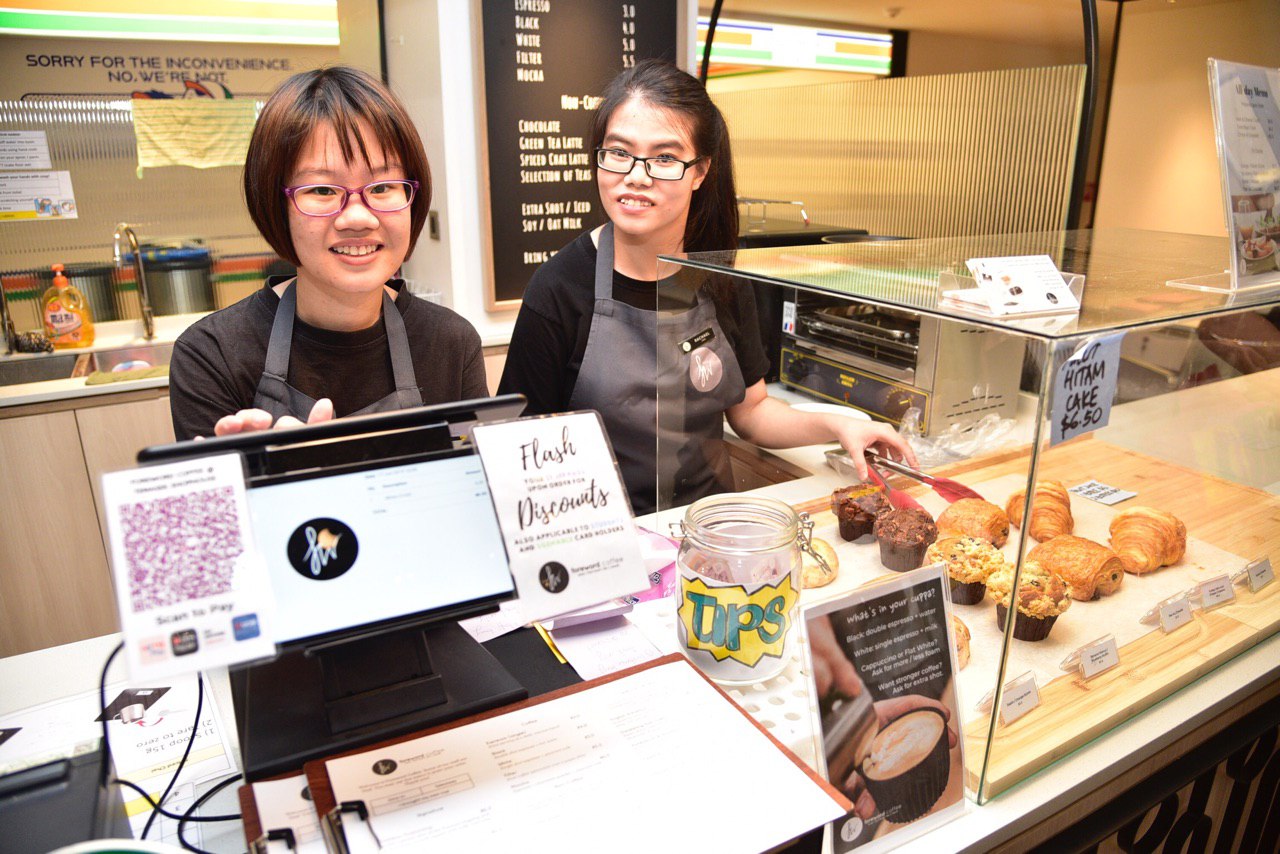Job redesign guide launched to help firms be more inclusive
Sign up now: Get ST's newsletters delivered to your inbox

Foreword Coffee employees Carmen Tan Yin Xin (left), 23 and Rachel Lum Yuan Ting, 19. They are among the 14 people with disabilities hired by the speciality coffee company and social enterprise, which has 18 staff in total.
ST PHOTO: DESMOND WEE
SINGAPORE - Autism is not proving any barrier at all when cafe worker Carmen Tan serves customers with a smile and friendly cheer.
Ms Tan, 23, is thriving at speciality coffee company Foreword Coffee thanks in large part to the way the firm has accommodated her with initiatives such as printing laminated instructions, simplifying processes and providing job flexibility.
Foreword Coffee, which is also a social enterprise, was one of the examples cited in a job redesign guide developed by SG Enable in collaboration with Ministry of Manpower (MOM) to help firms be more inclusive.
The guide was launched on Monday (June 17) at Foreword Coffee's outlet at Dhoby Ghaut. The company hires 14 people with disabilities ranging from autism to hearing impairment across its three cafes. It has 18 staff in total.
Foreword Coffee director Nadi Chan said: "It goes beyond a job. We are also improving and enriching their lives beyond the workplace, like their social skills and motor skills, for instance."
Ms Tan said: "I'm happy here because I like making friends. I remember customers' names and their drinks and they are my friends.
"The laminated cards also help to remind me of processes and questions to ask, like if customers want takeaway drinks or if they are eligible for a discount."
Job redesigning involves reviewing work responsibilities and environments, simplifying processes and developing solutions that can improve an employee's performance and safety.
Some examples include job carving, where specific tasks are created for the individual, job sharing for people working part time and labelling work desks with colour coding for staff to easily recall processes.
The guide recommends employers to first determine if redesign is necessary.
Then a firm has to identify areas for redesign depending on the needs of the employee, such as physical disabilities, limited vision or hearing, intellectual disabilities or difficulty adapting to changes.
Minister of State for Manpower and National Development Zaqy Mohamad said at the launch: "I think we have reached that point of maturity that we should be able to look at job redesign to help persons with special needs be employable and help the community to uplift themselves."
He pointed to grants and support for employers to hire those with special needs, such as the Open Door Programme, a government-funded initiative by the Ministry of Social and Family Development and Workforce Singapore.
Around 750 companies hired about 2,000 people with special needs from January 2016 to March this year.
Mr Zaqy said: "I encourage more companies to come on board. This is something that is promising and with the design guide, I hope we can expand this much further."
Case studies in the guide can also inspire other employers by showing that they can have a successful business while incorporating staff with special needs, he added.
Foreword Coffee employees with special needs are assigned to one station at any one time so they learn a specific process instead of all at one go. Operations are organised around the cashier and the side-bar, espresso and milk stations. Specific tasks are carved out for the employees at each spot according to difficulty level.
The company also experimented with a cup holder with a suction at the bottom so employees with weak hands can get a steady grip.
Coffee terms on the menu are simplified, using the word "black" instead of "Americano", for instance.
The company also bought equipment such as a "puq press" and auto milk frother to help those with weak muscles.
Mr Chan said: "Many employers are open minded but do not know how to start. That is where the guide comes in so they know such a business model can be sustainable. Our business is still for profit but it is about tying that bottom line together with inclusivity."


